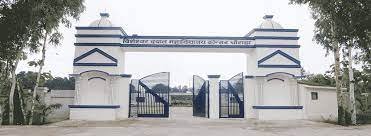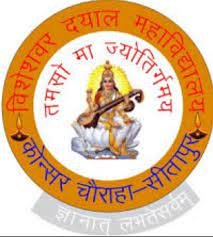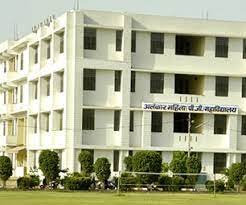The future scope of a BA in Textile Design includes a vibrant career in textile and fashion industries. Benefits encompass creative expression, technical skills, and opportunities to shape trends and innovation in textile design, offering a fulfilling and dynamic future.
Future Scope & Benefits for Bachelor of Arts (BA) Textile Design
A Bachelor of Arts (BA) in Textile Design offers a dynamic future with career opportunities in the fashion and textile industries. Benefits encompass creative expression, technical skills, and the chance to shape trends and innovation in textile design. Graduates can anticipate fulfilling roles as textile and fashion designers, product developers, or entrepreneurs, contributing to sustainable design solutions in a rapidly evolving field. The program combines artistry with practicality, making it a rewarding choice for those passionate about textiles and design, offering a unique blend of creativity and market relevance for a successful and fulfilling career path.
Future Scope of BA in Textile Design
The future scope of a BA in Textile Design is promising in the ever-evolving fashion and textile industries. Graduates can anticipate careers as textile designers, fashion designers, product developers, or entrepreneurs. With the growing demand for unique and sustainable textiles, the field offers ample opportunities for creative expression and innovation, ensuring a dynamic and rewarding future in the world of textile design.
-
Textile Designer: Graduates can work as textile designers, creating patterns, prints, and textures for fabrics used in clothing, home furnishings, and other textile products.
-
Fashion Industry: Textile designers often find opportunities in the fashion industry. They can work for fashion houses, apparel manufacturers, or as freelance designers, contributing to the creation of clothing lines.
-
Home Furnishing Industry: The home furnishing industry relies on textile designers to create attractive and functional fabrics for items like curtains, upholstery, and bedding.
-
Textile Technologist: Graduates can explore careers as textile technologists, focusing on the technical aspects of textile production, including quality control and testing.
-
Entrepreneurship: Some individuals choose to start their own textile design businesses, creating and selling their unique fabric designs to fashion designers, manufacturers, and retailers.
-
Sustainability and Eco-friendly Textiles: There is a growing demand for sustainable and eco-friendly textiles. Textile designers can specialize in creating environmentally responsible fabrics and materials.
-
Textile Research and Development: Graduates with a passion for innovation can work in research and development roles, pushing the boundaries of textile technology and materials.
Benefits of Pursuing a BA in Textile Design
Pursuing a BA in Textile Design offers numerous benefits. It fosters creative expression, hones technical skills, and equips individuals to shape trends in the textile and fashion industries. Graduates enjoy fulfilling careers as textile and fashion designers, product developers, or entrepreneurs, contributing to innovative and sustainable design solutions in an ever-evolving field.
-
Creative Expression: Textile design allows for artistic expression, enabling individuals to showcase their creativity through patterns, colours, and textures.
-
Versatility: A degree in textile design offers versatility, as it can be applied to various industries such as fashion, interior design, and manufacturing.
-
Job Opportunities: The textile and fashion industries are constantly evolving, providing a wide range of job opportunities for skilled textile designers.
-
Entrepreneurial Opportunities: Graduates can start their design studios or businesses, giving them the chance to be their own bosses and pursue their unique design visions.
-
Global Demand: Textiles are in demand worldwide, which can lead to opportunities to work internationally or collaborate with global brands.
-
Sustainability Focus: With the growing emphasis on sustainable practices, textile designers can contribute to eco-friendly and socially responsible design solutions.
-
Continuous Learning: Textile design is a field that encourages lifelong learning and staying up-to-date with the latest trends, materials, and technologies.
-
Cultural Appreciation: Textile design often involves exploring and appreciating various cultures, as many designs are inspired by traditional patterns and motifs from around the world.
 3 Years
3 Years
 Under Graduate
Under Graduate
 Arts
Arts
 Full Time
Full Time





 back
back